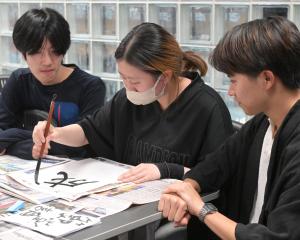
Young people with Attention-Deficit/Hyperactivity Disorder are 2.1 times more likely to be proceeded against by police, 2.2 time more likely to be charged in court, 2.3 time more likely to convicted in court and nearly five times more likely to be imprisoned compared to people without ADHD.
University of Otago women’s and children’s health research fellow Dr Nick Bowden said there was no data for what was going on in New Zealand in relation to ADHD and the justice system before this research.
"We’re a different population, we’re a unique population and we need to know what’s going on here rather than relying on what’s happening internationally."
Mr Bowden said ADHD effected 5% to 7% of children and young people internationally.
"People with ADHD often have trouble paying attention, staying focused and controlling their impulses.
"However, increasingly ADHD is also being viewed through a strength-based lens including the ability to hyperfocus, resilience, creativity, and abundant energy."
Despite the more positive understandings of ADHD, people living with it experienced higher rates of mental health conditions, disproportionately faced struggles in education and employment and had higher rates of involvement with the justice system.
Mr Bowden hoped the data would help lead to change.
"Once you have the evidence established in New Zealand then you can start to push for policy change.
"You can draw on that evidence in support for trying to lobby for whatever that might be, better support in schools, better restoring justice programmes in the criminal justice system, programmes that improve understanding of neurodivergence."
The research was funded by the Michael and Suzanne Borrin Foundation and the New Zealand Law Foundation with support from Better Start: E Tipu e Rea National Science Challenge.
It was part of a wider project on neuro-disability that included other conditions like autism, intellectual disability and foetal alcohol syndrome disorder.












